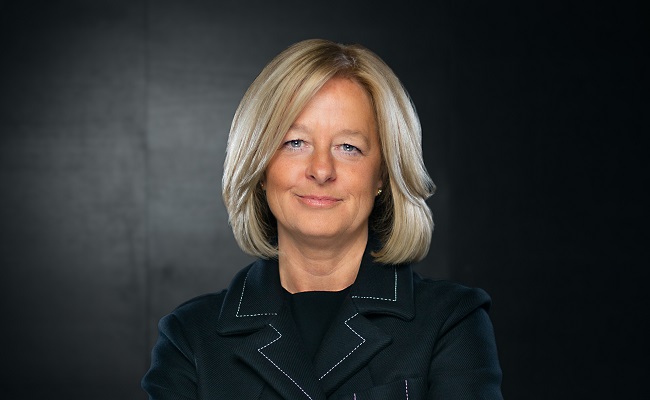What has new BT boss Allison Kirkby got in store for the telco?

In one week’s time, Allison Kirkby will take up the mantle at the helm of Britain’s biggest telecoms company.
BT’s first female boss has a strong CV. With a background in managing financial operations for large companies, she has been chief of Swedish telco giant Telia for almost four years.
There, she has streamlined the company’s portfolio, lowered its debt, prioritised connectivity services, and implemented a sustainability strategy.
But, as analysts have previously pointed out, the 56-year-old has another tough job ahead of her as she flies to BT.
BT is trying to streamline its operations as it continues to build full fibre and 5G networks in the UK, while undergoing a radical cost-cutting programme launched by former boss Philip Jansen. It plans to slash up to 55,000 jobs by 2030 – more than 40 per cent of its total global workforce.
It is also sitting on nearly £20bn net debt, which could threaten its 5.7 per cent dividend. This may further frighten off investors who are showing little faith as it is. The languishing stock is down over 51 per cent in the past five years.
Kirkby has served as a non-executive director on the board of BT since 2019, meaning she is already rather cosy with the company.
CCS Insight analyst Kester Mann said Kirkby’s arrival is unlikely to herald any major changes to the strategy that former chief Philip Jansen has put in place, at least initially, but she will have two main priorities.
He told City A.M.: “I think she’ll very much continue down the line of investing in full fibre broadband and 5G of course on the network side will be important.
“The second I think will be looking at turning around BT ‘s performance in the enterprise market because that’s an area where it’s under-performed recently,” Mann added.
In April 2023, the firm merged its global and enterprise wings together, creating BT Business, in a bid to cut costs, become more agile and take on new opportunities. It is headed up by Dutch business exec Bas Burger.
Paolo Pescatore, media analyst and founder of PP Foresight agreed that the business arm of BT has yet to prove itself. He said: “Business has been a problem child, it has under-performed and hasn’t done a really good enough job of tapping into new areas and embracing digital transformation.”
But Burger believes BT Business is “better positioned than anybody” to help its customers access their data securely because it owns the majority of infrastructure and it has the biggest B2B customer base in the UK and globally.
This, he told City A.M., means the company can see what customers are going through and help BT to “learn really fast”.
With fixed landline phones fading into obscurity and services like Zoom and Teams becoming the norm, BT has had to find ways to adapt. Mann said it is “taking a bit of time to get its house in order”.
Burger and Kirkby have a strategy to turn BT Business around. The plan is to turn off the “old world” of fixed landline phones, which are fading into obscurity, and focus purely on the “new world” of mobile communications.
Through this and other cuts, the business arm aims to slash half of its products, meaning it can reduce complexities and scale more quickly.
By the end of 2025, BT will have migrated to a fully digital network. This is also when BT are targeting savings of “at least” £100m. Burger said the company is on track for this.
Analysts said Kirkby will likely also be monitoring the potential tie-up between Vodafone and Three, as the UK’s competition watchdog initiates a formal investigation.
Should the deal be approved, it poses a new competitive threat. While BT claims it will have the best 5G network in the UK, Vodafone and Three have made similar assertions in anticipation of the merger.
Additionally, there is speculation about a potential takeover bid for BT, reportedly from telecoms magnate Patrick Drahi, who holds a nearly 25 per cent stake, or Deutsche Telekom, with an approximately 12 per cent ownership.